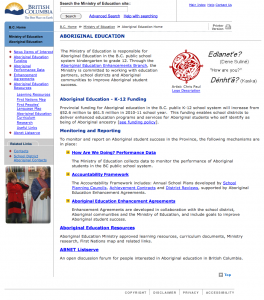Bowers, Vasquez and Roaf (2000) cite Don Ihde’s three fundamental experiences of technology: as a background relationship, as an physical interaction, and as a mediated experience that amplifies certain individual or cultural experiences while reducing others. In this TEDTalks video, Eli Pariser elaborates on how the experience of web browsing is becoming less of a community reality and more of an individualized experience, mediated in the background by internet conglomerates with little to no input from the individual.
[youtube]https://www.youtube.com/watch?v=B8ofWFx525s&feature=channel_video_title[/youtube]
With the identification of this “filter bubble,” internet consumers of all types, including academic researchers and grassroots activists, must be conscious to actively search out information and angles that may be otherwise buried due to their personal/digital profile. In our journeys as”cyber-travellers,” the road on the information superhighway that we choose could potentially preclude information superhighway off-ramps reflecting information that does not flow in the same direction we have been looking. If Pariser’s “Filter Bubble” is an accurate representation of web browsing experience, a series of web searches on one topic could conceivable reduce the number of search results we find that provide an opposing or challenging view.
In the similar vein, if the web browsing preferences and interests of Aboriginal activists or community members flow in opposing directions, people who may be united in a commonly defined goal may find vastly opposing (or totally irrelevant) online resources unless certain links are consciously looked for or provided by friends, family or colleagues. The algorithm that regulates an invisible shift of information flow on the internet could prevent community connectedness necessary for tribal nations to promote individual or common causes. When Bowers, Vasquez and Roaf stated eleven years ago that the spoken word could not be recovered with the same accuracy of the printed word, how could they predict that the digitally printed word could become more insidiously fluid than the spoken word?
